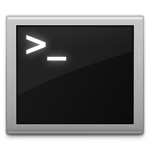 In my last article on this topic I explained how Magento Enterprise Edition Full Page Cache works, and how to use performance boost it provides at your own controller action. In the second part of this mini article series, I will try to explain concept of Enterprise_PageCache containers used for allowing dynamic behavior for certain blocks, even though page is served from full page cache.
In my last article on this topic I explained how Magento Enterprise Edition Full Page Cache works, and how to use performance boost it provides at your own controller action. In the second part of this mini article series, I will try to explain concept of Enterprise_PageCache containers used for allowing dynamic behavior for certain blocks, even though page is served from full page cache.
Tag Archives: Development
Linux system programming: Open file, read file and write file
 This is my first article in what I'm hoping will be a series of articles on system programming for POSIX compliant operating systems with focus on Linux. Actually I've touched this topic a while ago when I wrote three articles about library programming on Linux (static libraries, dynamic libraries and dynamic libraries using POSIX API). In this series my goal is to go trough basics of Linux system programming from the easiest topics like open file, read file and file write to a bit more complicated things like Berkeley sockets network programming. So lets get started with environment setup and an example of program that copies source file into destination file using POSIX API system calls to demonstrate open(), read() and write() system calls on Linux operating system.
This is my first article in what I'm hoping will be a series of articles on system programming for POSIX compliant operating systems with focus on Linux. Actually I've touched this topic a while ago when I wrote three articles about library programming on Linux (static libraries, dynamic libraries and dynamic libraries using POSIX API). In this series my goal is to go trough basics of Linux system programming from the easiest topics like open file, read file and file write to a bit more complicated things like Berkeley sockets network programming. So lets get started with environment setup and an example of program that copies source file into destination file using POSIX API system calls to demonstrate open(), read() and write() system calls on Linux operating system.
PHP function to get WordPress plugin version
 So you're working on a WordPress plugin and you want to get current plugin version using PHP for display inside your plugin settings or on your plugin front end. Hardcoding the plugin version and changing it every release is no fun so in this article I'm bringing you my little PHP function I use with my Quick Chat for WordPress plugin to get current plugin version.
So you're working on a WordPress plugin and you want to get current plugin version using PHP for display inside your plugin settings or on your plugin front end. Hardcoding the plugin version and changing it every release is no fun so in this article I'm bringing you my little PHP function I use with my Quick Chat for WordPress plugin to get current plugin version.
As always with WordPress development you need to be extra careful with your PHP and Javascript function names so you should prefix your every function with your plugin name. So here is PHP function you can use inside your plugin PHP file to get plugin version:
function plugin_name_get_version() { $plugin_data = get_plugin_data( __FILE__ ); $plugin_version = $plugin_data['Version']; return $plugin_version; } |
Keep in mind that get_plugin_data() is available only on site backend. I guess it needs no additional explanation. Enjoy!
Configure MySQL and Apache not to start at boot on Ubuntu Linux
 I often do my web development on the move using my laptop. Because of that I must run Apache with PHP and MySQL servers on both my desktop and my laptop PC. You can probably guess that this doesn't help to conserve my laptop battery so I've configured my laptop not to start MySQL and Apache automatically at boot. Instead I start those services manually when I plan to do some coding. In this article I'll show you how to configure your Ubuntu based PC to do the same.
I often do my web development on the move using my laptop. Because of that I must run Apache with PHP and MySQL servers on both my desktop and my laptop PC. You can probably guess that this doesn't help to conserve my laptop battery so I've configured my laptop not to start MySQL and Apache automatically at boot. Instead I start those services manually when I plan to do some coding. In this article I'll show you how to configure your Ubuntu based PC to do the same.
Enable userdir Apache module on Ubuntu Linux and other Debian based distributions
 Lately I've spent a lot of time on web programming using open source based technologies like PHP, MySQL and PostgreSQL. This works really great on Linux because every tool you need for web programing is right there a few keystrokes away using your favorite distribution and package manager. One essential thing you need to setup for web programming is localhost web server serving files inside your home directory. I've wrote about one method of making Apache web server work this way in my following article:
Lately I've spent a lot of time on web programming using open source based technologies like PHP, MySQL and PostgreSQL. This works really great on Linux because every tool you need for web programing is right there a few keystrokes away using your favorite distribution and package manager. One essential thing you need to setup for web programming is localhost web server serving files inside your home directory. I've wrote about one method of making Apache web server work this way in my following article:
LAMP development in your home directory with suPHP module
In this article I will show you how to do the same thing in another way by enabling Apache module called userdir on Debian based distributions like Ubuntu. The official definition of userdir is that "this module allows user-specific directories to be accessed using the http://example.com/~user/ syntax". So lets get started...
Continue reading